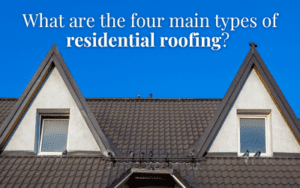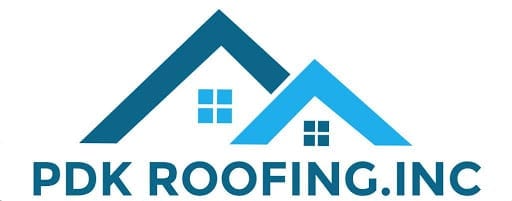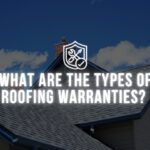
Roofing is one of the most crucial aspects of your home. It keeps you and your family safe from the weather, makes your home look better, and even makes it worth more.
However, there are so many options when it comes to residential roofing! Each type of roofing material has its pros and cons. This blog post will take a closer look at four main types of residential roofing: asphalt shingles, metal roofing, wood shake/shingles, and tile roofing.
We’ll discuss what each type accomplishes best–and where it falls short–so that when you’re ready to start looking for a new roofing contractor or performing major repairs on your present one, you’ll be armed with all the information you need to make an informed decision about which option would work best for your home’s needs.
Asphalt Shingles
People often use asphalt shingles on their homes because they look more natural than wood or metal. Also, they are easy to set up and require less maintenance, which makes them a great choice for first-time roofers.
So, before settling on asphalt shingles, homeowners should consider the pros and cons of this roofing material.
Pros:
- Affordable: Asphalt shingles are a cost-effective roofing option. They are generally less expensive than other roofing materials, such as slate or metal.
- Wide availability: Asphalt shingles are widely available and easy to find at most home improvement stores.
- Easy installation: Asphalt shingles can be installed by most roofing contractors, making them an easy option for homeowners.
- Variety of styles and colors: Asphalt shingles come in a wide range of styles and colors, making it easy to find an option that complements the aesthetic of any home.
Cons:
- Short lifespan: Asphalt shingles have a shorter lifespan than other roofing materials. They typically last between 15-25 years, while other materials can last up to 50 years or more.
- Susceptible to damage: Asphalt shingles can be damaged by strong winds, hail, and falling debris. They are also more vulnerable to fire damage than other roofing materials.
- Not environmentally friendly: Asphalt shingles are not an environmentally friendly option, as they are not recyclable and can release harmful chemicals into the environment during manufacturing.
- Can be affected by extreme temperatures: Asphalt shingles can become brittle in extremely cold temperatures and warp or melt in extremely hot temperatures.
Metal Roofing
Those who own a home and want to give it a touch of class and sophistication should strongly consider installing metal roofing. Metal roofs are long-lasting and resistant to extreme heat and weather, and they only take a few hours for a roofing specialist to install. Additionally, they are simple to fix if they become damaged.
Before deciding on the type of roofing material to choose, consider the pros and cons and the specific needs of your home. It is also important to have a professional install the metal roof to ensure proper installation.
Pros:
- Durability: Metal roofs are known for their durability, they can withstand extreme weather conditions such as heavy winds, rain, and snow. They have a lifespan of around 30-50 years and can even last up to 100 years with proper maintenance.
- Energy efficient: Metal roofs reflect the sun’s rays, which can help keep your home cooler in the summer and reduce your energy costs. They also have a low thermal mass, which means they don’t absorb as much heat, keeping your attic and upper floors cooler.
- Low maintenance: Metal roofs do not require regular maintenance such as painting or staining. They are also resistant to rot, mold, and mildew, which can be a problem with other types of roofing materials.
- Variety of styles: Metal roofs come in a variety of styles and colors, including standing seam, corrugated, and shingles, making it easy to find a design that complements the style of your home.
- Environmentally friendly: Metal roofing is a sustainable and environmentally friendly option. They are made of recycled materials and can be recycled again at the end of their lifespan.
Cons:
- High cost: Metal roofing is one of the most expensive roofing options. While it has a longer lifespan than other materials, the initial cost can be prohibitive for some homeowners.
- Noise: Metal roofs can be noisy during heavy rain or hail, which can be a concern for some homeowners.
- Dents: Metal roofs can dent if hit with heavy debris, such as branches or large hail.
- Condensation: If not installed properly, metal roofs can trap condensation, which can lead to mold and mildew growth.
- Expansion and contraction: Metal roofs can expand and contract with temperature changes, which can cause problems if not properly installed.
Tile Roofing
Tile roofing is a great way to improve the look of your home and make it more energy efficient. It’s no surprise that tile roofs are so common; they’re built to last for decades. Many homeowners like tile roofs because they are low-maintenance and easy to fix in the event of damage.
However, like any roofing material, it has its pros and cons.
Pros:
- Durability: Tile roofing is highly durable and can last for up to 50 years or more with proper maintenance. It is resistant to rot, fire, and insects, making it a great option for homes in areas prone to severe weather or wildfire.
- Aesthetically pleasing: Tile roofing comes in a wide range of styles and colors, which can complement a variety of architectural styles. It can add to the aesthetic appeal of your home, increasing its curb appeal and property value.
- Energy efficient: Tile roofing is energy efficient, as it can reflect sunlight, reducing the amount of heat that enters your home. This can help to lower energy costs during hot summer months.
- Low maintenance: Tile roofing is relatively low maintenance, requiring only an occasional cleaning and inspection.
- Environmentally friendly: Tile roofing is made of natural materials, it is recyclable and it can be made with recycled materials.
Cons:
- Expensive: Tile roofing is more expensive than other roofing materials such as asphalt shingles. It requires a significant upfront investment, which may not be affordable for some homeowners.
- Heavyweight: Tile roofing is quite heavy and requires a sturdy roof deck and framing to support it. This can be a concern for older homes that may not have been built to support this type of weight.
- Fragile: Tile roofing is fragile and can crack or break if stepped on or struck by falling debris. This means it needs to be handled with care during installation and maintenance.
- Climate-sensitive: Tile roofing is not recommended for areas that experience heavy snowfall, as the weight of the snow can cause the tiles to crack or break.
- Specialized installation: Tile roofing requires specialized installation, which can be difficult to find and can also be more expensive.
Wood Shake/Shingles
Wood shake shingles are an excellent choice for residential buildings.
They are long-lasting, inexpensive, and beautiful. They can be installed on both new and renovated properties.
You can also get wood shake shingles in different colors and patterns, so you can match the look of your roof to the style of your home. Consult with a professional roofing contractor to help you make an informed decision.
Pros:
- Aesthetics: Wood shake and shingles have a natural, rustic look that can add character and charm to any home. They come in a wide range of colors and styles, making it easy to find the perfect fit for your home’s aesthetic.
- Longevity: When properly maintained, wood shingles can last for 20-30 years. This is longer than many other roofing materials, such as asphalt shingles, which typically last between 15-25 years.
- Lightweight: Wood shake and shingles are lightweight, making them a good choice for homes with limited structural support.
- Insulation: Wood shake and shingles can provide natural insulation, keeping your home warm in the winter and cool in the summer.
- Eco-friendly: Wood is a natural, renewable resource that is biodegradable and recyclable. It also helps to reduce the carbon footprint of your home.
Cons:
- Maintenance: Wood shake and shingles require regular maintenance, including staining or painting to protect them from the elements. They are also susceptible to damage from insects and pests, which can shorten their lifespan.
- Weather resistance: Wood shake and shingles are not as durable as other types of roofing materials and can be damaged by severe weather conditions. They are also highly flammable, which makes them a fire hazard.
- Cost: Wood shake and shingles are relatively inexpensive, but they do require regular maintenance, which can add to the overall cost.
- Availability: Wood shake and shingles may be difficult to find in some areas and can be more expensive than other roofing options.
- Installation: Wood shake and shingles require specialized installation techniques, making them more difficult to install than other roofing materials. This can also add to the cost of installation.
Conclusion
When deciding on the best residential roofing material for your home, consider the climate and weather conditions in your area, your budget, and the overall look of your property. Speaking with a professional roofing contractor is also a good idea to ensure that the material you select is the best for your home.
At PDK Roofing, Inc., our experienced team can assist you with any aspect of residential roofing in Port St. Lucie, FL, from installation to maintenance. Experience makes people better at what they do, and our team has been roofing for a long time.
We do roofing at PDK Roofing, Inc., so we know it inside and out. We guarantee that our work will be of the highest quality! In addition, we want you to understand your options, which is why we offer a comprehensive consultation service to all of our clients so they can make an informed decision that is best for them and their property.
Customer satisfaction is our number one priority!





